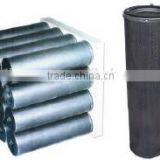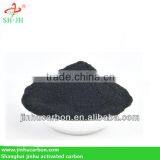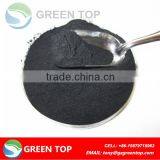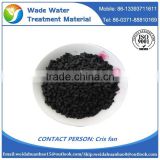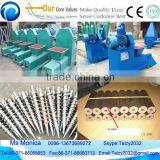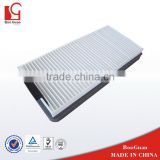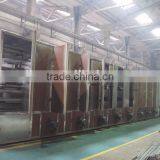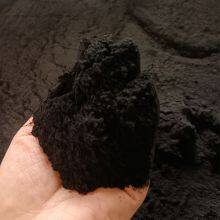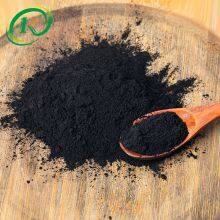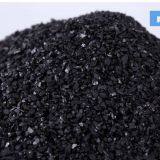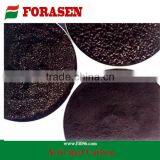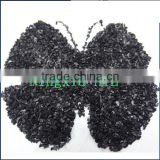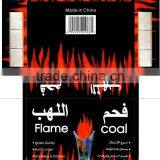Activated charcoal is gaining notoriety for its numerous medicinal and wellness uses. It is a tasteless and odorless black powder that burns at high temperatures. Known for its medicinal and wellness grade applications, activated charcoal also has powerful absorbent qualities. Activated charcoal helps in binding with toxins and chemicals in the body, thus making it easier to eliminate. Poisoning, improving digestion, and detoxification are a few ailments that activated charcoal can help with.
The effectiveness of activated charcoal in different applications is connected to the absorption processes that take place. The process used to make charcoal activated involves heating carbon-rich materials, which creates a porous structure containing numerous tiny pores. The increase in the surface area of charcoal allows the absorption of toxins and chemicals. When taken orally, activated charcoal absorbs toxins in the stomach and intestine, preventing entry into the bloodstream. This method works well in poisoning cases where toxin absorption through the gut is significantly reduced with the help of activated charcoal.
Activated charcoal attaches to different substances using a method known as adsorption; this differs from absorption. Adsorption is the phenomenon in which clusters of molecules, including gases, liquids, or dissolved solids, adhere to a surface. In activated charcoal, its surface is filled with many pores like a sponge, which trap toxins and chemicals. Preventing the body from absorbing these toxins makes activated charcoal a powerful detoxifying agent. The numerous medical applications of activated charcoal, especially in emergencies like overdose and poisoning, are accompanied by its effectiveness in adsorbing a wide variety of substances.
The primary effect of activated charcoal on the body is detoxification. Activated charcoal works by binding toxins and chemicals to prevent their absorption in the body, particularly in the case of poisoning, improving one’s overall health in the process. Moreover, some studies suggest that activated charcoal lowers cholesterol levels by binding to bile acids, which contain a considerable amount of cholesterol in the intestine, thus impeding its reabsorption. While activated charcoal has its positive uses, it is essential for one to use it responsibly since taking it with some drugs or nutrients will render them ineffective.
Activated charcoal is often used in the case of poisoning because of its capacity to adsorb many different poisons and chemicals. During acute cases of poisoning, activated charcoal can be given as a single dose and taken by mouth to eliminate poisons before they are absorbed into the bloodstream. Its use in treating poisoning is time sensitive; activated charcoal works best within an hour of taking the toxin. Occasionally, activated charcoal is administered in multiple doses to expedite the removal of some drugs from the system.
Aside from its role in treating poisons, activated charcoal has a useful application in medicine. Often utilized in the emergency room for managing overdoses and poison cases, activated charcoal aids in mitigating gas and bloating by binding with the gas-forming substances in the intestine. Studies show that activated charcoal will help in the reduction of cholesterol, but these claims require further investigation. In addition to these studies, some are looking into the claims that activated charcoal improves kidney function by filtering out toxins.
Some evidence suggests activated charcoal can reduce cholesterol levels. The hypothesis is that activated charcoal binds with cholesterol and bile acids in the intestines, inhibiting their absorption back into the blood. This can lead to a reduced cholesterol level. Some studies show that activated charcoal may have a positive effect on cholesterol; however, more research is needed to understand its effects fully. Activated charcoal should not be used for managing cholesterol without consulting a physician as a primary care provider.
The activated charcoal dosage is recommended differently depending on the intended use. For detoxification, 1 to 2 grams alongside water is a common dose. In the case of overdose or poisoning, the dosage is often increased significantly to 25 to 100 grams, depending on the circumstantial severity. Following a medical professional's guidance is crucial, as administering high-dose charcoal without professional supervision is misleading. This is because the wrong dosage would lead to other medical issues during treatment.
The use of activated charcoal requires good timing, especially in the case of an overdose or poisoning, which may require activated charcoal within an hour of ingesting the toxic substance. For detoxification, activated charcoal can be taken daily. In those cases, it should be taken two hours before or after meals, medication, or anything that might interfere with the absorption of charcoal.
Although activated charcoal works for most people, it does have some side effects. The most common side effects are constipation and the production of dark stool. The side effects are benign, however, for some people, they can be worrisome. More serious problems like dehydration or digestive tract obstructions can occur, but these are much rarer and are more likely with elevated dosages. Following the instructed doses and drinking enough fluid decreases the chances of experiencing side effects.
Activated charcoal is useful in treating overdoses of certain drugs and toxins. It prevents absorption of some bound substances within the digestive tract into the bloodstream, which lessens the degree of overdose. However, its effectiveness varies with the nature of the drug consumed and the time of use. Substances that are absorbed in the stomach and intestines work best along with immediately activated charcoal.
In some cases of overdose, activated charcoal in multiple doses may be given to aid in the removal of some drugs from the body. This method is the administration of activated charcoal in doses within a certain interval, which can aid in breaking the enterohepatic circulation of some drugs, increasing their excretion. This approach is helpful with drugs that have long half-lives or those that tend to get reabsorbed in the intestines.
Activated charcoal in cases of overdose is administered within the first hour of ingestion, as faster administration leads to better outcomes. Absorption and interaction with the toxic substance will occur without heavily binding if activated charcoal is administered too late. Each case does vary to some extent, but heavy metals or corrosive substances will not be canceled out with the usage of activated charcoal, so medical professionals should ensure supervision.
Activated charcoal candidates are potential aids for the treatment of diarrhea by adhering to the bacteria and other harmful substances that cause gastrointestinal distress. This adherence action may mitigate the severity and period of diarrhea, therefore serving as a remedy for those afflicted with dyspepsia. As much as this may sound interesting, it is important to discuss with your physician before taking activated charcoal therapy for diarrhea because, like all treatment modalities, there are contraindications to taking activated charcoal, which may include other diarrhea-type disorders due to its nutrient-absorbing interference.
As explored further, activated charcoal seems to be advantageous in managing other disorders simultaneously. It may alleviate symptoms of gas and bloating while mitigating halitosis by adhering to compounds responsible for bad odors. Some individuals may use activated charcoal for the skin, given that it helps with adsorption, it may also assist in the removal of impurities and toxins from the skin. These reasons may be a bit more anecdotal, but professional advice and sound scientific evidence must be available before activated charcoal use for such purposes.
Many studies suggest that activated charcoal may provide important health benefits which including detoxification and improving digestive health. Its usefulness in treating poisoning and overdose is well documented, and there is some evidence that it may lower cholesterol and improve kidney function. Further research is warranted to determine its full range of benefits and to develop formal protocols for its use. Like all supplements, trusted studies should be relied upon, and healthcare professionals should be consulted.
A: Activated charcoal that is activated is a powder that is black in color, tasteless, and does not emit any odor. It is produced from coconut shells and coal through a rigorous heating process. For its powdery and nontasty form, it is used for treating drug overdoses and poisoning due to its capability to bind to toxins, preventing their absorption as intake in the stomach’s hydrochloric acid.
A: Activated charcoal aids in overdose treatments by intercepting drugs and toxins within the stomach as well as the intestines, forming an intractable complex. Because of its efficacy in emergency medicine, it is very useful during k, drug overdose cases, and poison exposure.
A: Yes, the addition of charcoal for gases may enable intestinal gases to lessen. Thus, avoiding discomfort from gases increases bloating, enabling the shortcut of the chemicals that cause this.
A: Charged or activated charcoal is regarded as safe for short-term use. Potential adverse effects from charged charcoal include short-term use with blackened stools caused by charcoal combined with constipation and bowel blockage. Needing to be under a healthcare professional's care ensures safety.
A: For patients suffering from chronic kidney disease, activated charcoal may be beneficial by lowering urea and other waste substances in the blood. Its usefulness in treatment, however, needs to be studied more thoroughly.
A: The most important guideline is to take it immediately after the patient has taken the poison. In some situations, a second dose of activated charcoal may be required, but this should only be done with a doctor’s orders.
